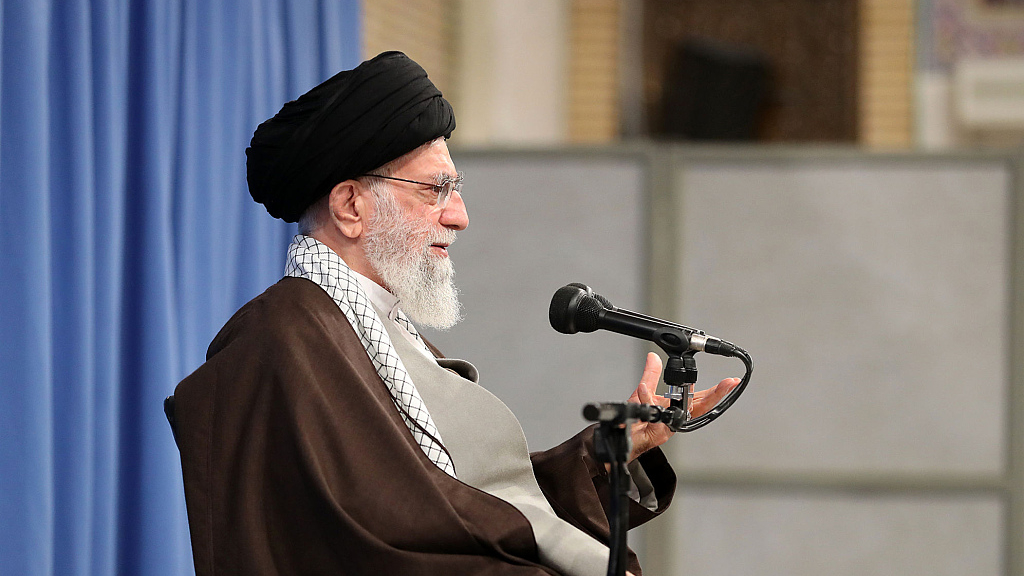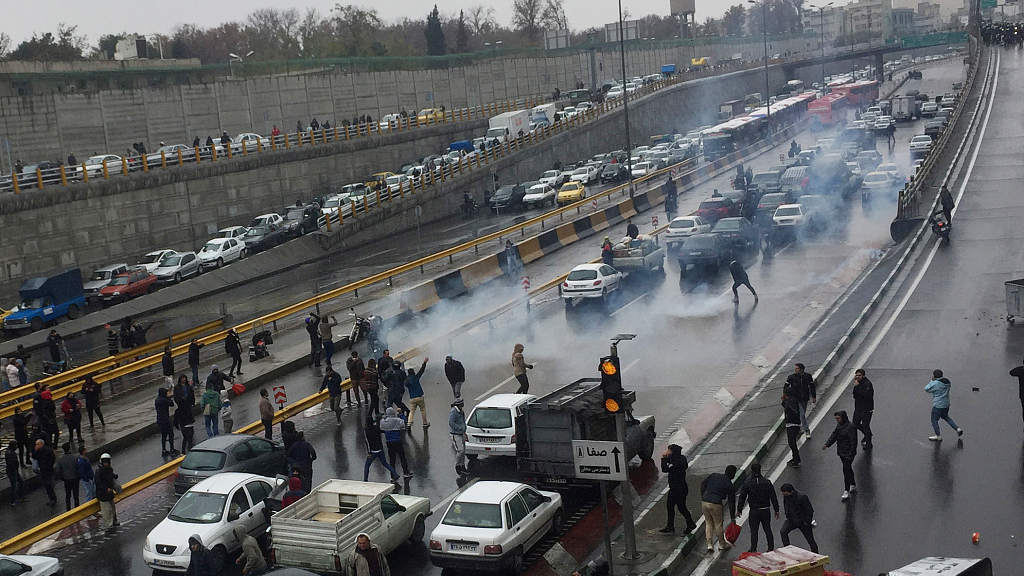
Editor's note: Dr. Wang Jin is a research fellow at the Charhar Institute and an associate professor at Northwest University in China. The article reflects the author's opinions, and not necessarily the views of CGTN.
Major protests are sweeping across Iran after Iranian President Hassan Rouhani announced the decision of reducing gasoline subsidies on November 15. Some protesters took an anti-government stance; however, Rouhani and Supreme Leader Ayatollah Ali Khamenei still insisted that the reduction of the subsidies would move forward.
Iran has a heavily subsidized system covering daily necessities such as basic food and gasoline for the public. The subsidies have helped to alleviate the daily pressure of Iranian families and improved the livelihood of average Iranians. However, this system has become a pressing burden for Iran's economy, especially for Iran's budget. Given that Iran is facing serious sanctions imposed by Washington, Tehran has to re-adjust its own economic policy including its subsidies to the public.
2019 has seen Iran's economy shrink dramatically. According to the report from International Monetary Fund (IMF) released last month, Iran's economy is expected to contract by nearly 9 percent by the end of this year.
Washington's withdrawal from the Joint Comprehensive Plan of Actions (JCPOA) signed in 2015, and Trump's re-imposition of sanctions against Iran last May, have become a real threat to Iran's economy.
Trump's sanction measures of isolating Iran's financial system from the world and his efforts to cut Iran's oil exporting cooperation with its major partners, has dealt a huge blow to Iran's economy.
Iran has been highly dependent upon its energy revenues from exporting oil. It has the second largest natural gas reserves and the fourth largest crude oil reserves in the world, and its exports of oil and gas account for more than 80 percent of its exports revenues. More importantly, oil revenues, unlike the other exports, could be turned into an official budget given that most oil and gas companies are state owned.

People protest against increased gas prices on a highway in Tehran, Iran, November 16, 2019. /VCG Photo
People protest against increased gas prices on a highway in Tehran, Iran, November 16, 2019. /VCG Photo
Iran's 2019 budget was about 41 billion U.S. dollars, while Tehran expected that nearly half of the budget came from oil exports. However, given the heavy sanctions from Washington, its oil exports reduced to less than 200,000 barrels per day (bpd), from nearly 2 million bpd one year ago.
The major decrease in oil exports means that the government does not have enough revenue to meet its 2019 budget target. Against this backdrop, the Rouhani-led government has to squeeze the subsidies to the public.
Corruption and internal competition between different political factions further exacerbates the crisis that has resulted from insufficient revenues.
The Iranian government could, at least partially compensate for its revenues by collecting more taxes from different sectors, companies and businesses. However, many rich businesses with high profits are controlled by different political factions, especially by the Islamic Revolutionary Guards Corps with a strong social network and military power.
Given the special political system featured as the vilayat-i-faqih, or the Guardian of Religious Clergies, the Iranian government is incapable of monitoring or intervening in other social, religious and military groups inside the state. Therefore, Rouhani is not able to collect enough money to increase the revenue.
The latest protest is not new, and in late 2017 and 2018, similar protests emerged across Iran. The economic hardship has led to the average Iranian's disappointment in Rouhani's government, and even in Iran's theocratic establishments and military forces. Iran's economy is facing a pressing threat due to the U.S. sanctions, declining oil exports, currency devaluation and economic mismanagement.
Many Iranians who once harbored strong confidence over better living standards and more economic opportunities finally came into total disappointment over Iran's deteriorating economic circumstances.
The reduction in gasoline subsidies directly caused dissatisfaction in many Iranians against the government and even the state due to the shrinking economy in 2019. Given that U.S. sanctions might not be lifted soon and the economic hardship is most likely to continue, the protests might go on and social stability faces severe threats inside Iran.
(If you want to contribute and have specific expertise, please contact us at opinions@cgtn.com.)